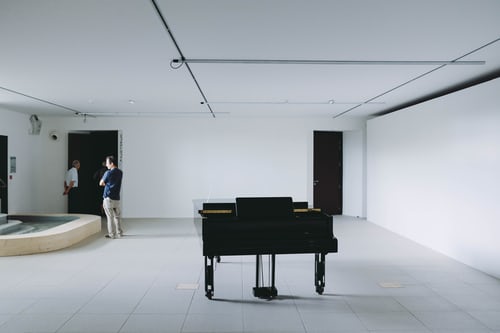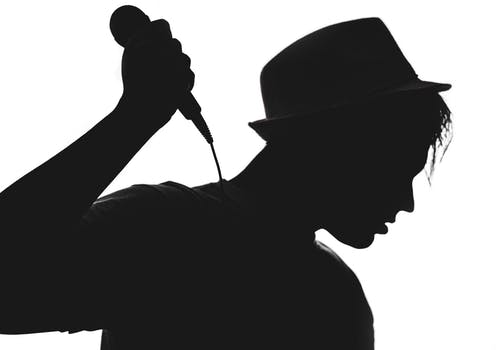A very frequently asked question about pianos is, “Does a piano need to be tuned?”
The quick answer is, yes, it does.
While many might think it’s basic knowledge, it is a genuine question and concern for most beginners.
They do not know about piano tuning and, thus, fail to get the most out of it, or worse, end up damaging their instrument.
If you are confused too, don’t worry; you’re not the only one!
Today, this article will answer all of your questions about piano tuning and whether your instrument needs it.
Plus, we’ll talk about how many times you should tune it and the right way to do it.
Does A Piano Need To Be Tuned?

As mentioned earlier, yes, a piano needs tuning just as much as any other stringed instrument.
Manufacturers and experts recommend tuning a piano regularly and making sure your instrument gets this service as required.
Does it matter if someone’s playing it?
No.
You should tune the piano regardless.
Even if your sound-producing masterpiece is 20 years old, if the strings are still intact and the wood looks good, you ought to tune the instrument.
Why Does A Piano Need Tuning?
Your piano is a machine that comprises wood and strings.
When the majestic instrument is fresh out of the manufacturing process, the strings have a lot of tension.
After the first couple of years, they begin to stretch, and the wood starts to settle.
As a result, the strings’ tension doesn’t stay the same as it was when it was “born.”
It requires tuning again as it ages.
However, there are a couple of other reasons why your piano might need tuning.
- Temperature and Humidity
If the temperatures are not stable and the humidity is high where you live, you might have a little more to worry about than just your wardrobe.
If your piano sits next to a window, a door, or in an open space, the humidity and fluctuating temperatures can make the wood contract and expand.
This environmental change causes pressure changes in the strings, and the tension decreases.
The quickest way to solve this problem is to stabilize the temperature and limit the moisture around the instrument.
You can do this by either changing the piano’s location or altering the air-conditioning as required.
- Moving and Vibrations
Whether the instrument is being continuously used or you’re moving it around too much, resultant vibrations can cause the strings to stretch out.
When you press a key, it’s corresponding hammer strikes a string.
This strike creates vibrations that run along the line and fluctuate the pressure in them.
If this process occurs too frequently, the strings will lose their tension faster.
As a result, they might need tuning sooner than the average suggested time frame.
How Can You Get Your Piano Tuned?
Hiring expert help is a more popular recommendation than doing it manually because professional tuners provide first-class services.
They have the required knowledge, skills, and experience to tune pianos of different kinds and ages.
If you want more guidance on where you will find expert piano tuners, here’s a little tip: search the internet and look for the nearest piano experts and tuners.
Being geographically particular is beneficial because the closer the tuner, the lesser time it will take them to come.
Thus, the visiting charges will be less.
Once you have found a tuner nearby, look up their profile, and read the reviews.
If they seem legit and trustworthy, congratulations, you’ve found yourself a piano tuner!
What Happens If You Don’t Tune Your Piano?
If your piano is out of tune, ugly sounds are the first negative impact it will have.
You will hear uncomfortable sounds and notice abnormalities in pitches, notes, and chords.
Secondly, an untuned piano has overstretched strings.
If you play the instrument in such a state, you might end up damaging it.
How Often Should You Tune Your Piano?
Ideally, experts and manufacturers advise four piano tunings in the first year.
In the following year, you can tune it twice.
If you can’t be as regular, tune your piano at least once annually.
How Would I Know If My Piano Needs Tuning?
While you do have an average guess of how often you should tune the instrument, sometimes, there are clear signs that your piano needs extra care.
If your tool depicts any of the following, it might need to get tuned:
- When your piano starts producing an incorrect pitch, know that it needs tuning.
- If you hear uncomfortable, wavering sounds when you play the instrument, take that as a sign and get your piano tuned as soon as possible.
- The wavering comes from abnormal vibrations in the strings and can distort the notes. Sometimes, the strings compete to cancel out sounds altogether.
- Standard pianos create octaves that blend. Unblended octaves represent an instrument that requires tuning.
- Typically, major chords sound pretty harmonious and blend seamlessly. Unappealing disruptions in chords are very noticeable when your piano is out of tune.
How Much Does Piano Tuning Cost?
Tuning a piano isn’t always expensive.
However, the cost majorly depends on how old it is and how much time it’s been since its last tuning session.
If you haven’t tuned your piano in a while, let’s say it’s been more than a couple of years, it will be a little more time-consuming, complicated, and, thus, expensive.
However, if the condition is good, and you get your piano regularly tuned, it will not cost you a fortune.
On average, piano tuning can cost you from a minimum of $65 all the way up to $200, sometimes even more.
Summary
So, does a piano need to be tuned?
Yes, it does, just like other stringed instruments.
Like them, your piano also requires particular attention and professional tuning services.
Indeed, there is a set time frame in which you should get your piano tune.
However, sometimes, you might need to make exceptions.
Once you realize that your piano needs tuning, hire a professional as soon as possible and get it done by an expert.
If not, you will not like the consequences.



